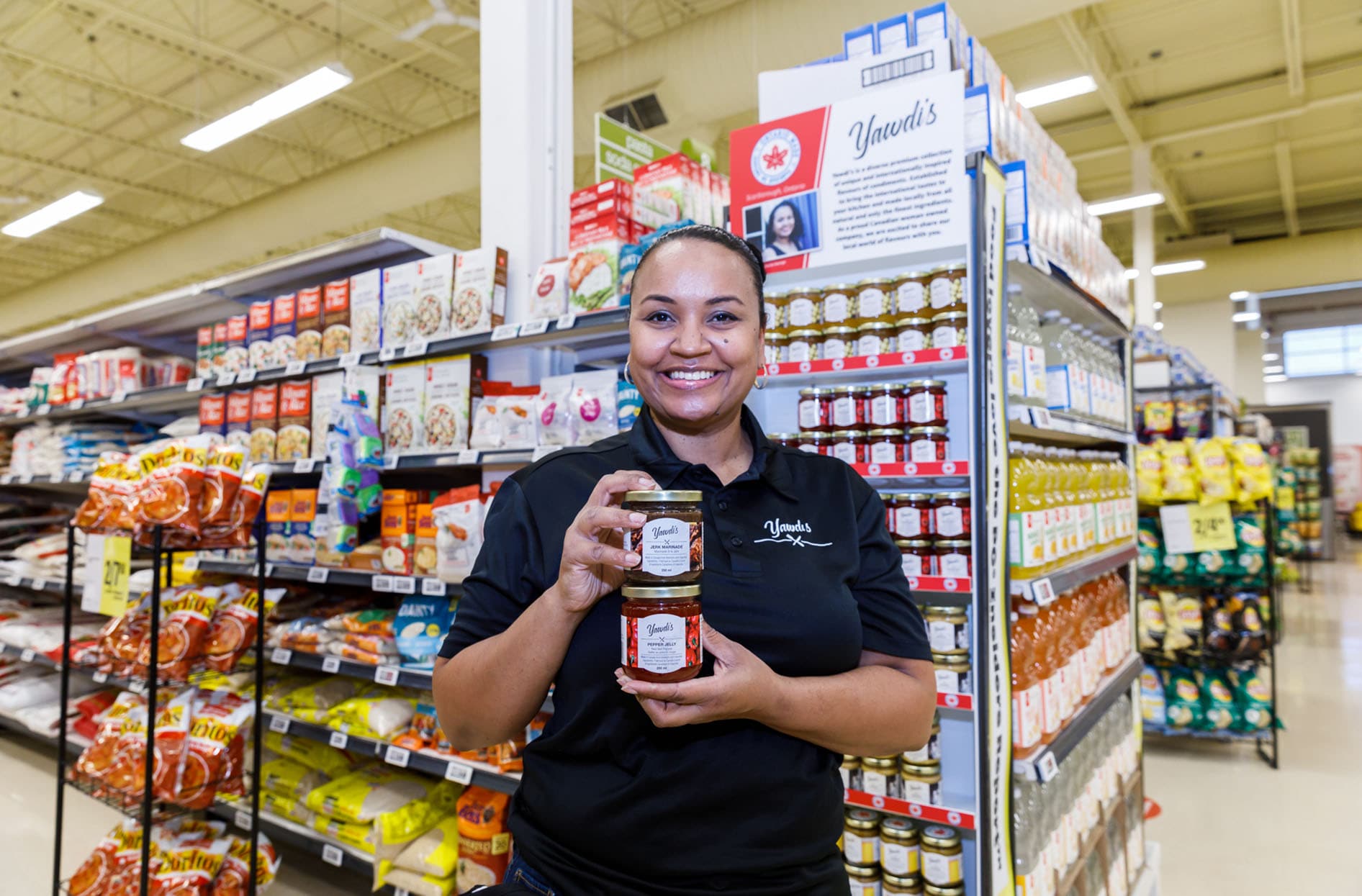Loblaw helps Yawdi’s take off
July 14, 2021

Back in 2015, Veneise George was looking for a way to spend more time with her kids. The busy mom worked full-time as a youth manager at a Toronto not-for-profit and volunteered in her community, so by the time she got home she usually had to choose between prepping dinner and hanging out with her children.
A talented home cook who’d learned her way around the kitchen when she was just a kid, Veneise soon came up with a solution: a fresh jerk seasoning that she could store in the fridge and pull out whenever she wanted to marinate meat. Her ‘creation,’ as she affectionately refers to it, wasn’t just convenient, it was delicious – and her parents, family friends and co-workers soon found out as well.
Encouraged by their responses, Veneise developed more products, including pepper jelly and mustard. She signed up for a course on starting a small business at the local library, invested money in scaling her recipe up for production and came up with a name: Yawdi’s, after the term for a Jamaican ex-pat. She started selling her sauces at consumer shows and markets, and convinced a local West Indian store in Scarborough, to carry Yawdi’s.
But she still had a long way to go.
“You have to pay for your labels, your recipes, the facility, your nutritional facts,” she says. “At first, I thought I would be bottling my products at home and taking it to a store. I didn't realize all the other stuff!”
Enter Loblaw, and a made-in-Ontario program to help smaller businesses get their products on grocery shelves.
Vendors usually approach the company to pitch their products, says Adrian Centea, Category Director at Loblaw, but that can be tough when you’re a smaller player.
“Essentially, this program gives the smaller folks a shot to actually make a statement within a large store. And we’re doing it a different way. We’ve designed a framework that gives us an opportunity to tell our customers who they're supporting and letting them connect emotionally with each brand instead of just putting it on the shelf with big-brand competitors,” he says.
Adrian says he felt a particular responsibility to ensure the program reached groups that historically haven’t had access to resources like this, like Black and other racialized people.
“We want to make sure that we are letting our vendor community know that we're listening and we're giving everybody a fair opportunity to help grow their business. As the largest grocery store within Canada, we have a lot of responsibility on our hands,” he says.
Now, almost six years after she first came up with the idea for Yawdi’s, Veneise’s products are in more than 100 Zehrs®, Loblaws®, Your Independent Grocer® and Valu-Mart® locations across Ontario. And while she’s super proud of how far she’s come, she also knows that’s a sign of something bigger.
“Getting Black-owned businesses on store shelves is the first step towards addressing systemic equity barriers,” she says.


